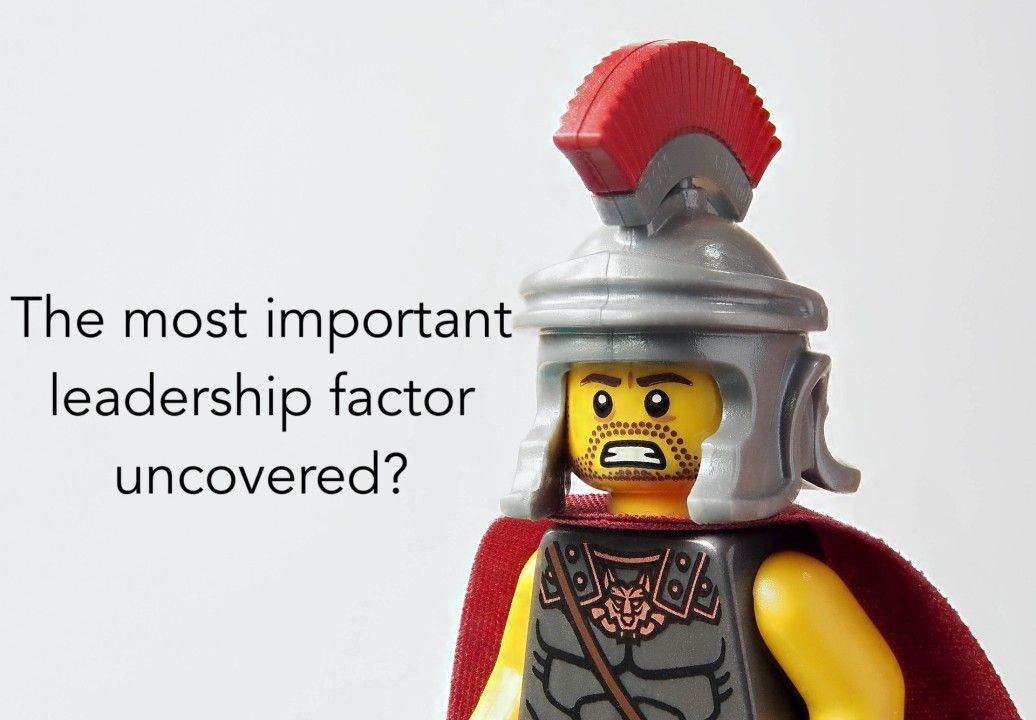Are you the type of person people want to follow?
What exactly is leadership? Turns out pretty much anything you want it to be. The great challenge facing organisations is the use and abuse of language. Key words emerge over time such as Strategy, Management, Leadership and more recently Agility and Disruption. With time they become holdalls for just about anything that anyone wishes to attach to them.
In their recent HBR article "Why Likable Leaders Seem More Effective" (McAllister, Moss and Martinko October 29 2019) the authors raise some important issues.
Their analysis over five years of six major major management journals unearthed 134 articles on leadership "promoting at least 29 leadership theories including "authentic," "transformational," "charismatic," "ethical", and "servant."
A similar review of HBR showed 161 similar leadership articles adding several other unique styles "including "artful" and "humble.""
The real danger of course is that the important subject of leadership in organisations becomes so vague that the very word becomes meaningless at best and annoying at worst.
However there may be some light at the end of the tunnel.
McAllister et al have revealed a critical factor. When a subordinate rates a leader positively on one item, they tend to rate other factors positively as well. And the key factor appears to be "likability."
We can support this with our own assessments of several thousand leaders in many organisations where we have found the most significant factor that separates great leaders from poor leaders is the following, which of course directly reflects "likability." (Based on our extensive factor analysis and detailed data review.)
"The type of person people want to follow."
Therefore we need to understand and embrace complexity. Leadership is complex and dynamic and depends as much on the assessor's perception of the leader as it does on any apparent skill or competence of the leader.
For those of you interested in additional detail, and based on our initial research of over 120 leadership factors, the following emerged as the most significant, all of which support the "likability" thesis.
1. Type of person people want to follow
2. Highly respected
3. A great motivator and mentor of subordinates
4. Empowers others to develop their maximum potential
5. Attracts the best people
6. Communicates strategy with commitment and passion
7. "Walks the talk." Visible to subordinates
8. Integrates complex and diverse functions
9. Has knowledge, skill and experience
10. Great team player
WHAT CAN WE LEARN FROM THIS?
The evidence is there. Leadership is a dynamic issue and is based on individual perceptions linked to "likability" based on deeper issues such as trust, energy, integrity and what will this person do for me? You need look no further than current political leaders such as Trump, Erdogan, Johnson and Corbyn. Clearly there are no leadership factors that are universal other than "likability" or "the type of person people want to follow."
WHAT CAN WE DO TO INCREASE "LIKABILITY?"
From a development and performance perspective the message is clear. Generally today people do not want to work for unpleasant, dictatorial and command-and-control type individuals. Given that the lifespan of organisations is shrinking rapidly, leaders must learn the new behavioural skills that generate their "likability." Regular and honest feedback combined with professional coaching represent the best new pathway.
Comments
By accepting you will be accessing a service provided by a third-party external to https://quanta.consulting/

